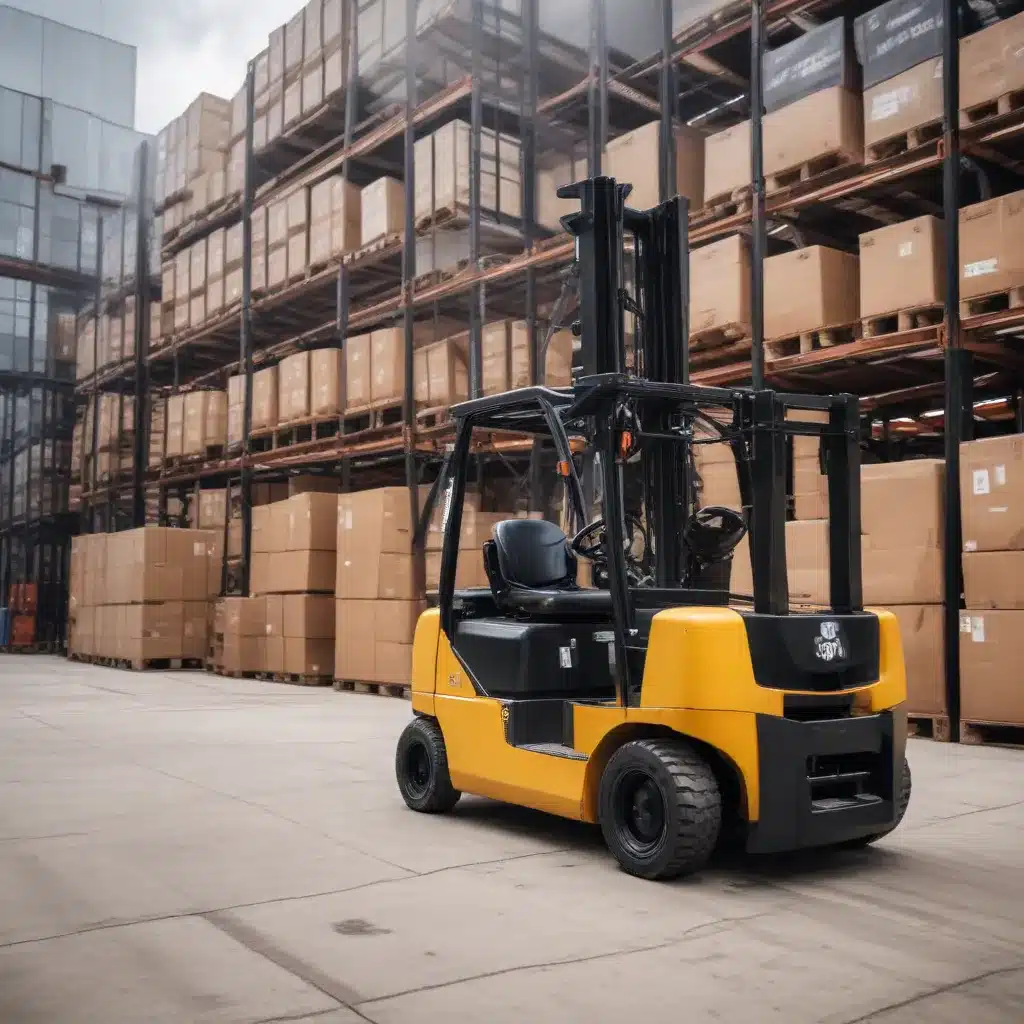
The Shift to Electric Forklifts: Driving Sustainability in Material Handling
As the global economy continues to evolve, the logistics industry is undergoing a significant transformation, with the adoption of electric forklifts emerging as a key driver of sustainability. Faced with increasing pressure to reduce carbon emissions and improve overall environmental performance, businesses across various sectors are embracing the benefits of electric forklift technology.
The Advantages of Electric Forklifts
Electric forklifts offer a range of advantages that make them an increasingly attractive option for logistics operations. These advantages include:
-
Reduced Emissions: Unlike their diesel or propane-powered counterparts, electric forklifts produce zero direct emissions, contributing to a significant reduction in greenhouse gas (GHG) emissions and improved air quality, especially in indoor warehouse environments.
-
Lower Operating Costs: Electric forklifts have lower fuel and maintenance costs compared to traditional forklift models, leading to substantial long-term savings. The total cost of ownership (TCO) for electric forklifts is often lower, making them a smart financial investment.
-
Improved Productivity: Electric forklifts provide consistent power delivery and faster acceleration, allowing for more efficient material handling operations. Their quiet operation also creates a more comfortable working environment, enhancing employee productivity.
-
Increased Safety: The instant torque and smooth acceleration of electric forklifts can enhance operator control and safety, reducing the risk of accidents. Additionally, the absence of exhaust fumes and reduced noise levels contribute to a safer and healthier work environment.
Overcoming the Challenges
While the benefits of electric forklifts are compelling, the industry has faced several challenges in the transition towards widespread adoption. These challenges include:
-
Battery Technology and Charging Infrastructure: The limited range and long charging times of some electric forklift models have been a concern, particularly for operations that require extended runtime or frequent use. However, advancements in battery technology and the expansion of charging infrastructure are addressing these issues.
-
Initial Cost Considerations: The upfront capital investment required for electric forklifts can be higher than traditional models, which can be a barrier for some businesses. However, the long-term cost savings often outweigh the initial investment, and various incentives and government programs are available to offset these costs.
-
Fleet Conversion and Operational Adjustments: Transitioning an entire forklift fleet from internal combustion engines to electric models can be a complex process, requiring careful planning, infrastructure upgrades, and operator training. Successful fleet electrification requires a comprehensive approach to ensure a seamless transition.
Embracing the Future of Sustainable Logistics
As the industry continues to evolve, the adoption of electric forklifts is poised to play a pivotal role in the future of sustainable logistics. Several industry leaders have already taken the lead in this transition, showcasing the potential and tangible benefits of embracing electric forklift technology.
Case Study: Prologis Electrifies Its Fleet
Prologis, a leading global logistics real estate company, has taken a significant step towards sustainable logistics by electrifying its forklift fleet. By partnering with Volvo to transition over 100 Class 8 electric trucks, Prologis has demonstrated the feasibility of large-scale fleet electrification.
The Prologis Mobility team worked closely with the customer to design and install the necessary charging infrastructure, ensuring a seamless transition. This comprehensive approach, which included an onsite truck lot repaving project and collaboration with the local utility, has set a new standard for successful fleet electrification initiatives.
Innovations Driving the Transition
As the demand for sustainable logistics solutions grows, manufacturers and technology companies are driving innovation to address the challenges associated with electric forklift adoption.
-
Tesla Semi: Tesla’s all-electric semi-truck, the Tesla Semi, is designed to offer a range of up to 500 miles on a single charge and fast-charging capabilities that can provide up to 400 miles of range in just 30 minutes. Several companies, including PepsiCo and Walmart, have already placed orders for the Tesla Semi, indicating strong market interest in long-haul electric transportation.
-
Rivian’s Amazon Partnership: Rivian, an electric vehicle manufacturer, has partnered with Amazon to deliver 100,000 electric delivery vans by 2030. This initiative is part of Amazon’s broader plan to achieve net-zero carbon emissions by 2040 and is expected to accelerate the adoption of electric vehicles in the logistics sector.
-
Charging-as-a-Service: Innovative solutions like Prologis Mobility’s charging-as-a-service model are emerging, which provide a comprehensive approach to fleet electrification. By bundling energy, infrastructure, and operations into a simple electricity subscription rate, these solutions help businesses overcome the challenges of transitioning to electric forklifts.
The Path Forward: Embracing Sustainability in Logistics
As the industry continues to evolve, the adoption of electric forklifts is poised to play a pivotal role in the future of sustainable logistics. By embracing the benefits of electric forklift technology, businesses can reduce their environmental impact, improve operational efficiency, and position themselves as leaders in the sustainable logistics landscape.
To achieve this, a collaborative approach is essential. Governments, industry organizations, and technology providers must work together to address the remaining challenges, such as improving battery technology, expanding charging infrastructure, and providing financial incentives to support the transition.
By taking proactive steps towards fleet electrification, businesses can not only contribute to a greener future but also reap the operational and financial benefits that come with embracing sustainable logistics solutions. As the industry continues to evolve, the time to act is now, and those who embrace the opportunities presented by electric forklifts will be well-positioned to thrive in the years to come.
To learn more about the latest advancements in forklift technology and explore sustainable logistics solutions, visit forkliftreviews.com.

